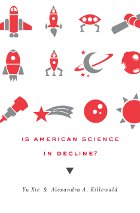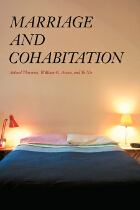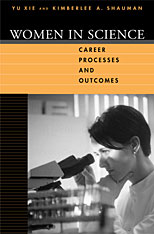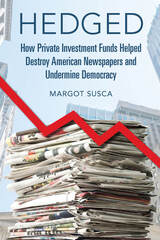
Alarmists argue that the United States urgently needs more and better-trained scientists to compete with the rest of the world. Their critics counter that, far from facing a shortage, we are producing a glut of young scientists with poor employment prospects. Both camps have issued reports in recent years that predict the looming decline of American science. Drawing on their extensive analysis of national data sets, Yu Xie and Alexandra Killewald have welcome news to share: American science is in good health.
Is American Science in Decline? does reveal areas of concern, namely scientists’ low earnings, the increasing competition they face from Asia, and the declining number of doctorates who secure academic positions. But the authors argue that the values inherent in American culture make the country highly conducive to science for the foreseeable future. They do not see globalization as a threat but rather a potential benefit, since it promotes efficiency in science through knowledge-sharing. In an age when other countries are catching up, American science will inevitably become less dominant, even though it is not in decline relative to its own past. As technology continues to change the American economy, better-educated workers with a range of skills will be in demand. So as a matter of policy, the authors urge that science education not be detached from general education.

In an era when half of marriages end in divorce, cohabitation has become more commonplace and those who do get married are doing so at an older age. So why do people marry when they do? And why do some couples choose to cohabit? A team of expert family sociologists examines these timely questions in Marriage and Cohabitation, the result of their research over the last decade on the issue of union formation.
Situating their argument in the context of the Western world’s 500-year history of marriage, the authors reveal what factors encourage marriage and cohabitation in a contemporary society where the end of adolescence is no longer signaled by entry into the marital home. While some people still choose to marry young, others elect to cohabit with varying degrees of commitment or intentions of eventual marriage. The authors’ controversial findings suggest that family history, religious affiliation, values, projected education, lifetime earnings, and career aspirations all tip the scales in favor of either cohabitation or marriage. This book lends new insight into young adult relationship patterns and will be of interest to sociologists, historians, and demographers alike.

Why do so few women choose a career in science--even as they move into medicine and law in ever-greater numbers? In one of the most comprehensive studies of gender differences in science careers ever conducted, Women in Science provides a systematic account of how U.S. youth are selected into and out of science education in early life, and how social forces affect career outcomes later in the science labor market.
Studying the science career trajectory in its entirety, the authors attend to the causal influences of prior experiences on career outcomes as well as the interactions of multiple life domains such as career and family. While attesting to the progress of women in science, the book also reveals continuing gender differences in mathematics and science education and in the progress and outcomes of scientists' careers. The authors explore the extent and causes of gender differences in undergraduate and graduate science education, in scientists' geographic mobility, in research productivity, in promotion rates and earnings, and in the experience of immigrant scientists. They conclude that the gender gap in parenting responsibilities is a critical barrier to the further advancement of women in science.
READERS
Browse our collection.
PUBLISHERS
See BiblioVault's publisher services.
STUDENT SERVICES
Files for college accessibility offices.
UChicago Accessibility Resources
home | accessibility | search | about | contact us
BiblioVault ® 2001 - 2024
The University of Chicago Press









